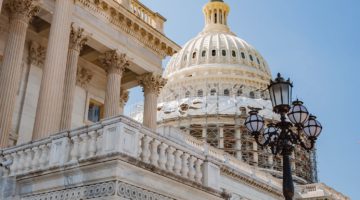 In August 1791, two years after the French Revolution began, enslaved Africans revolted in the French slave colony called St. Domingue (Haiti). Africans and some mulattos fought for their freedom all of twelve and a half years. The black ex-slave armies of revolt leader Toussaint L’Ouverture and his top general, Jean-Jacques Dessalines, executed the only successful slave revolt anywhere in the Americas!
In August 1791, two years after the French Revolution began, enslaved Africans revolted in the French slave colony called St. Domingue (Haiti). Africans and some mulattos fought for their freedom all of twelve and a half years. The black ex-slave armies of revolt leader Toussaint L’Ouverture and his top general, Jean-Jacques Dessalines, executed the only successful slave revolt anywhere in the Americas!
First, the two armies all but destroyed the French plantocracy on the island then they defeated a Spanish force and huge English and French armies. In Adam Hochchild’s book Bury the Chains, we learn that then-U. S. President George Washington and then-Secretary of State Thomas Jefferson, both slave owners, sent “a thousand muskets, other military supplies, and eventually some $400,000” of U. S. aid to quell the revolt now known as “the Haitian Revolution.”
Many Africans shipped to St. Domingue had fought the Portuguese in wars on the Angola-Congo coast, and had become captives of slave merchants as prisoners of war. They were good, experienced fighters who understood guerrilla warfare and attacks by troops.
Randall Robinson reveals more in his book, An Unbroken Agony: “Some . . . had been brought to Haiti [St. Domingue] from other Caribbean slave colonies – men like the storied Boukman from Jamaica and the legendary Makandal from Trinidad, and the great general, Henri Christophe, who was born in Grenada.” Blacks who escaped plantations in the United States also joined L’Ouverture’s armies.
As a 12-year-old boy in 1779, Henri Christophe fought in the American Revolution at the battle of
Savannah with George Washington’s soldiers and 800 Haitian blacks and mulattos. Haitians fought and died for American independence. That was 12 years before the Haitian Revolution.
The revolution in Haiti owed its success to L’Ouverture and Dessalines. Though dissimilar in many ways, they were imbued with leadership genius. As generals, they worked together closely, and their troops exhibited extreme discipline.
Robinson reports that L’Ouverture had been the intellectual, “the African humanist, the military strategist, the administrator and, not insignificantly, the conciliator.” Robinson also writes that Dessalines “had been, first and last, the hard-nosed soldier who believed that an enemy as manifestly unsalvageable as the French had to be, wherever possible, obliterated.”
Victorious, on January 1, 1804, Dessalines renamed the former colony Haiti. Before European colonization, the Taino Amerindians had called their island Ayiti for over 1,000 years. Under Admiral Christopher Columbus and Spanish colonization, the Taino people became the world’s first victims of genocide. They were utterly exterminated between the years 1492 and 1542.
Napoleon Bonaparte and France were in dire straits after ex-slaves defeated them in Haiti. Two-thirds of France’s world trade income had vanished, and Napoleon had to sell the Louisiana Territory to the U. S. for a mere $15 million.
Randall Robinson tells us that “the French-held [Louisiana] territory obstructed further westward expansion by the United States.” Napoleon Bonaparte’s failure to hold that territory changed the course of American and world history.
As president of the United States of America, Thomas Jefferson showed disgust and disdain for the new Republic of Haiti. Jefferson would not grant diplomatic recognition to Haiti, and proposed an embargo that Congress welcomed.
American slave owners in and out of government, including Jefferson, had to hate what Haitians did, according to Robinson: “The Haitian government rolled out an unconditional welcome mat to anyone who escaped European colonialism in Africa or fled bondage from a slave plantation anywhere in the Americas, North, South, or Central.”
Haiti is the first nation in the world to abolish slavery.
As the badly defeated French army departed Haiti in 1804, the United States, the Vatican and western Europe worked together to assure that the new nation would be socially crippled through politics, economics and class. To this day, those policies have a direct impact on massive illiteracy and poverty among blacks, and a ruling class of mostly mulattos and foreigners.
“The new country endured a variety of attacks, some imposed concurrently, others consecutively,” Robinson wrote.
Attacks include “military invasions, economic embargoes, gunboat blockades, reparations demands, trade barriers, diplomatic quarantines, subsidized armed subversions, media volleys of public traducement [slander], and a string of twentieth-century U. S. armed black dictators. . . .”
The United States and Europe worked a global economic embargo on the new nation of Haiti, and France demanded financial reparations for being denied the right to continue owning Haitians as their slaves!
Historians cannot find another instance in history in which a defeated nation imposed reparations on its conqueror.
Al_Calloway@Verizon.net









No Comment